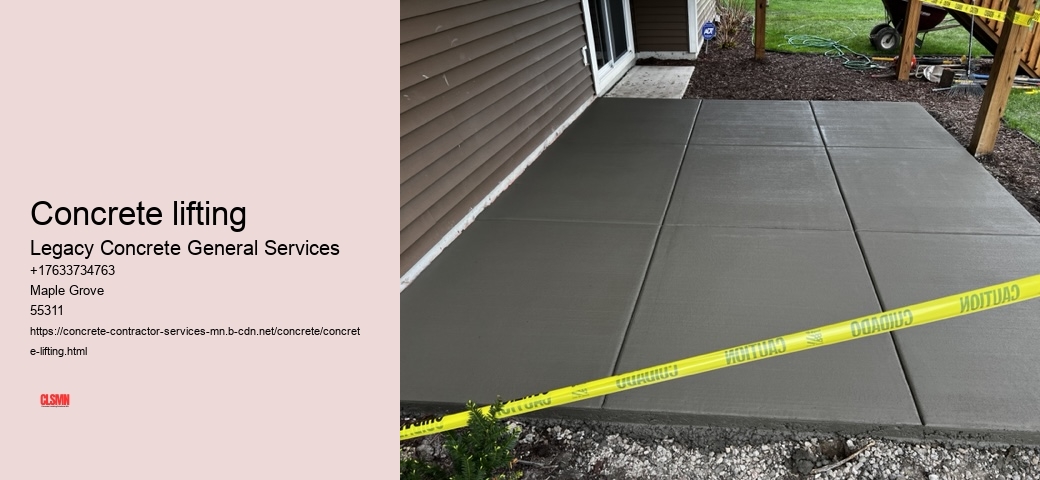Concrete Lifting: A Modern Solution to an Age-Old Problem
Concrete is one of the most widely used building materials in the world, revered for its strength and durability. From sidewalks and driveways to patios and foundations, concrete plays a central role in shaping our built environment. However, like all materials subjected to the forces of time and nature, concrete can degrade over the years. One common issue homeowners and property managers encounter is sinking or uneven concrete slabs. This problem not only detracts from the appearance of a property but can also create safety hazards. Fortunately, there is an innovative solution that has gained popularity in recent years: concrete lifting.
Concrete lifting, sometimes called slab jacking or mudjacking, is a method used to raise sunken or uneven concrete back to its original level. Instead of tearing out the damaged slab and pouring new concrete-a process that can be costly and time-consuming-concrete lifting restores the existing structure using advanced techniques. More than just a repair method, it represents a sustainable alternative that saves time, money, and resources.
The process of concrete lifting typically begins with identifying why the slab has shifted in the first place. Gravel In many cases, soil movement beneath the slab is to blame. Over time, soil can erode due to water runoff or compact under heavy loads, leaving voids that cause sections of concrete to sink or tilt unevenly.
Concrete lifting - Driveway Installation
- Retaining Wall
- Salt
- Painters
- Asphalt
When injected beneath the sunken slab, these materials fill any gaps in the underlying soil and expand as they harden. This controlled expansion lifts the slab back into its proper position while stabilizing it against future movement.
Concrete lifting - Patios
- Driveway Installation
- Patios
- Gravel
- Concrete Pavers
One of the key advantages of concrete lifting lies in its efficiency compared to traditional replacement methods. Replacing an entire section of damaged concrete involves demolishing old slabs, removing debris, preparing new forms for pouring fresh cement, waiting for curing times-and thats assuming ideal weather conditions throughout!
Concrete lifting - Patios
- Texture
- Form
- Basement
- Concrete Repair
Cost-effectiveness is another significant benefit worth highlighting. Installing new concrete can be expensive when factoring in labor costs as well as materials required for complete replacement projects; on top comes potential landscaping restoration afterward! By choosing instead quick affordable fixes via lift-techniques homeowners save thousands without sacrificing long-term integrity reliability Their restored surfaces often last decades if properly maintained ensuring strong returns investment upfront expenditure wise over lifespan usage terms
Perhaps even greater impact environmentally conscious consumers who prioritize sustainable practices reducing carbon footprints environmental degradation associated excessive waste generated during disposal processes construction activities large-scale replacements entail significant energy consumption emissions output across phases production delivery installation altogether Conversely opting eco-friendly solutions supports broader global goals combating climate change preserving planet future generations
Safety cannot overlooked either given importance ensuring secure safe pathways homes businesses alike tripping hazards liability risks avoided thanks smooth consistent surfaces achieved leveling operations Ultimately everyone benefits enhanced accessibility usability communal spaces neighborhoods workplaces public areas shared collectively contributes quality life overall satisfaction community pride cohesion strengthened bonds people places inhabit interact daily basis
In conclusion growing popularity widespread adoption around world testament effectiveness utility addressing longstanding issues practical affordable way simultaneously promoting greener smarter habits industries reliant technologies innovations continue evolve improve refine year after year
